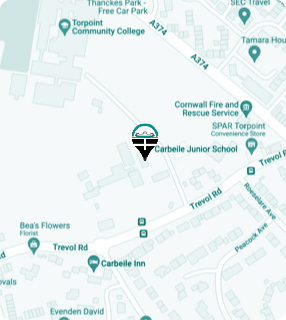INTENT:
Religious Education lessons enhance pupils’ awareness and understanding of religions and beliefs. Pupils discuss and reflect on the influence of religion on individuals, families, communities and cultures. Daily acts of collective worship provide opportunities for our school community to reflect together on the rich tapestry of human experience and existence.
IMPLEMENTATION:
- All lessons are planned using skills progressions so that knowledge is taught horizontally across the year group, skills are progressed vertically across the key stage, resulting in diagonal learning.
- Weekly Religious Education lessons are implemented using ‘Understanding Christianity’ materials and teaching model and the 2014 Cornwall Agreed Syllabus for Religious Education.
- Making sense of the text – Developing skills of reading and interpretation; understanding how Christians and other principle religions interpret, handle and use sacred texts; making sense of the meanings of texts through drama and storytelling.
- Understanding the impact – Examining ways in which Christians and other principle religions respond to sacred texts and teachings, and how they put their beliefs into action in diverse ways within their community and in the world
- Making connections – Evaluating, reflecting on and connecting the texts and concepts studied, and discerning possible connections between these and pupils’ own lives and ways of understanding the world.
- Time is dedicated for daily acts of collective worship.
- We use our ‘total recall’ time at the start of topic and R.E lessons to develop the children’s long-term memory on specific R.E KIRFs (Key Instant Recall Facts).
IMPACT:
By the end of key stage 2, every pupil at Carbeile Junior School has an enhanced awareness and understanding of the teachings of Christianity and four other principle religions; that they can reflect on their own beliefs and respect and tolerate the views of others’.
“I really enjoy RE because you learn about different religions and cultures. It is linked to History because you learn about life styles from the past,” Luke Year 5.
“I like learning about the different Christian festivals and why we celebrate them,” Liam Year 5.
![]() RE – Intent, Implementation and Impact
RE – Intent, Implementation and Impact
How are RE lessons taught at Carbeile?
Lessons are taught weekly (1 HOUR). Children learn about a range of world religions. According to the Cornwall Agreed RE syllabus, children at Carbeile learn about Christianity, Islam, Judaism and Hinduism.
Children also consider other believes across the world including atheism and humanism.
RE has a key role in the promotion of pupils’ spiritual, moral, social and cultural development which benefits them as individuals and others in their communities. As the world appears to become ever more challenging and complex, it is important that pupils can be prepared for the world, and not lose focus on the spiritual, moral, social and cultural environment.
Teaching of Religious Education at Carbeile provides opportunities for pupils to develop understanding and respect of people’s beliefs and values. We practise our school values to have respect, tolerance, pride and responsibility and look at how these values can be used in other cultures.
Daily Collective Worship
We provide opportunities for Daily Collective Worship through classroom reflection, assemblies and in our RE lessons. This gives the Carbeile community a platform to pause and reflect, learn how to behave in a large social group and allow time to celebrate achievements and discuss challenges.
Cornwall Agreed Syllabus
We follow the Cornwall Agreed Syllabus, which is a statutory document for Cornwall LA community, trust, foundation and controlled schools. It can be adopted by aided schools, academies and free schools with the consent of their governing bodies or board of directors to support the delivery of the syllabus.
The Agreed syllabus implementation booklet sets out how the syllabus may be implemented, but it is for schools to implement the syllabus ,as they decide, as long as they are meeting the statutory requirement. The booklet should not be used as a definitive guide to how schools must use the syllabus
Implementation booklet with KS1, KS2 andKS3 units of work which have been developed by the agreed syllabus writing group since the syllabus was agreed and adopted. As such they’re a valuable resource and now conform to the requirements of the syllabus as agreed and adopted.
The PowerPoint presentations for secondary and primary schools are available as are the schemes of work for KS1, KS2 and KS3.
Oracy
Children are given frequent opportunities to discuss their opinions and thoughts about religion and role play religious stories.
Enrichment
Religious Education at Carbeile is a crucial part of our humanities curriculum. Children have opportunities to explore belief and faith globally as part of wider curriculum days and events from the Humanities Hub.
Home Learning
There could be an element of Religious Education within your child’s topic home learning tasks, which are set every half term.
Knowledge Facts.
These are closely aligned with the curriculum, with specific half-termly targets for each year group. We expect the majority of children within a year group to be working towards these targets. Children are expected to practise these facts at least three times per week. If your child is struggling to recall facts, please concentrate on a smaller number and practise more frequently.
The Religious Education Co-ordinator
Grant Walker is the Religious Education Co-ordinator and oversees the teaching and learning of RE at Carbeile Junior School.

